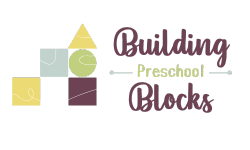Skills Learned in Curriculum
Visual Discrimination
This cognitive skill allows children to recognize and differentiate visual information (shapes, colors, objects, etc.), helping them make sense of the world around them.
- Traces Name
- Can identify all colors
- Sings and says days of the week
- Sings and says alphabet
- Learns Zoo Phonics songs
- Counts to 10+
- Identify objects
- Begins to recognize letters of the alphabet
- Traces letters
- Traces numbers
Fine Motor
Children will learn to use and control their hands, fingers, and wrists, to perform precise and delicate tasks like writing, drawing, and tracing.
- Hands are still forming – is learning how to hold pencil, crayons, etc.
- Traces on line
- Traces objects
- Assembles puzzles
- Paints
Social & Emotional
Children learn to understand and manage their emotions, develop positive relationships with others, and acquire the skills necessary for effective social interactions.
- Plays games together
- Shares toys, crayons and other items
- Begins to show respect and concern for others
- Talks, interacts with other children
- Begins to take turns
- Begins to understand to pick up after a task
- Learns how to follow rules
- Participates in show-n-tell once a week
- Participates in Christmas program singing
Listening & Speaking
This skill allows children to gradually refine their ability to understand spoken language (listening) and express themselves verbally (speaking).
- Listens and focus’ for about 5 minutes
- Loves story time and tries to listen
- Recalls past events
- Begins to make needs known
- Uses polite words
Auditory
This skill involves both the perception of sounds and the comprehension of spoken language.
- Learning songs
- Learning nursery rhymes
- Playing games with each other
Critical Thinking
Critical thinking empowers children to be curious, independent thinkers who can make informed decisions, solve problems, and adapt to various situations effectively.
- Listens and focus’ for about 5 minutes
- Loves story time and tries to listen
- Recalls past events
- Begins to make needs known
- Uses polite words
Gross Motor
This refers to the abilities that involve the use of large muscle groups in the body to perform activities that require physical movement and coordination such as walking, jumping, and climbing.
- Hopping, skipping (very hard) jumping, dancing
Practical Life
Here we engage children in age-appropriate activities, providing opportunities for hands-on learning, and allowing them to take on responsibilities
- Says first name
- Can line up
- Knows how old he/she is
- Knows less known body part (elbows, shoulders, knees, etc)
- Can hang his/her backpack on hook

